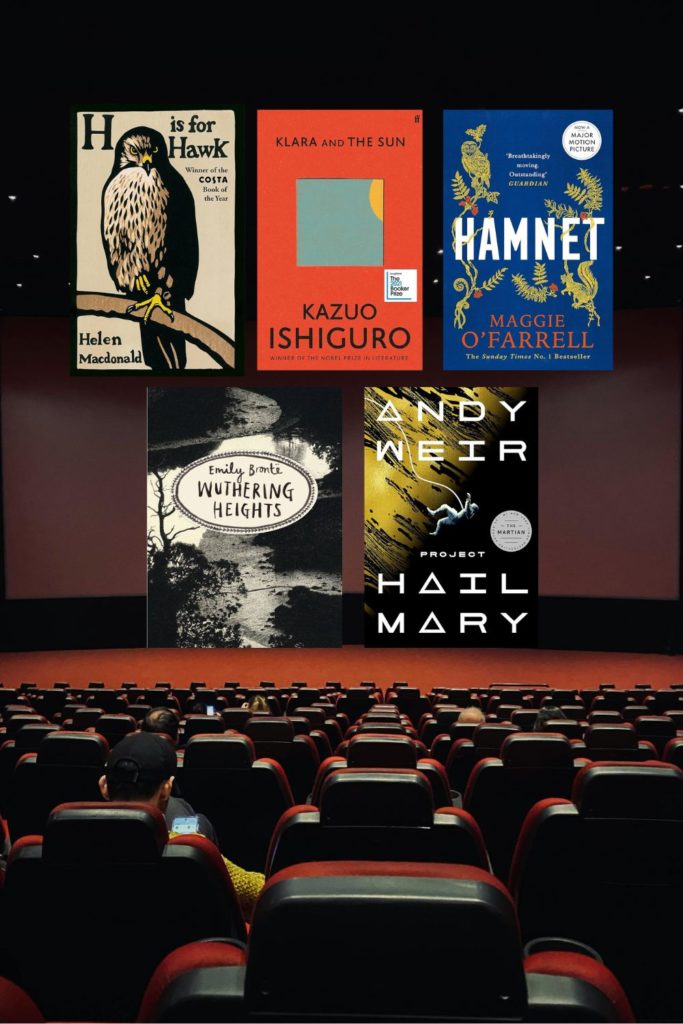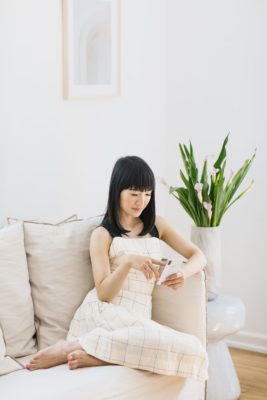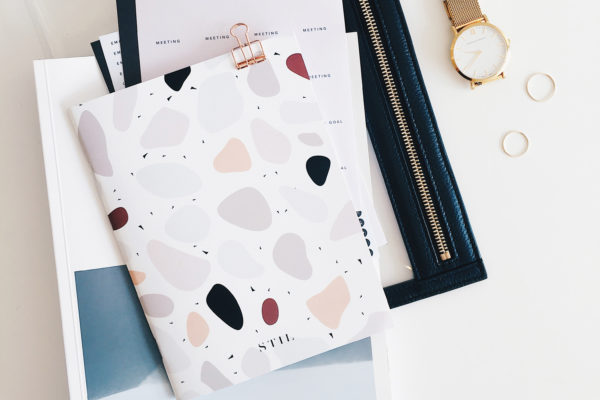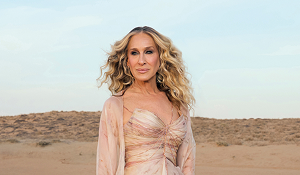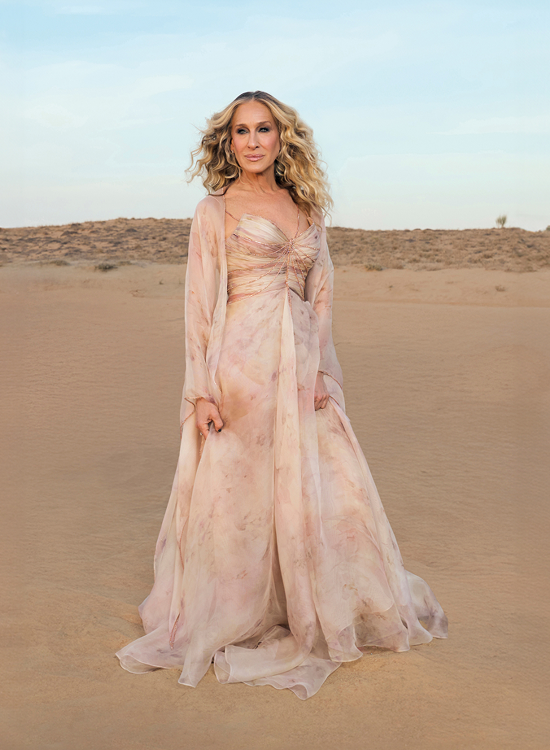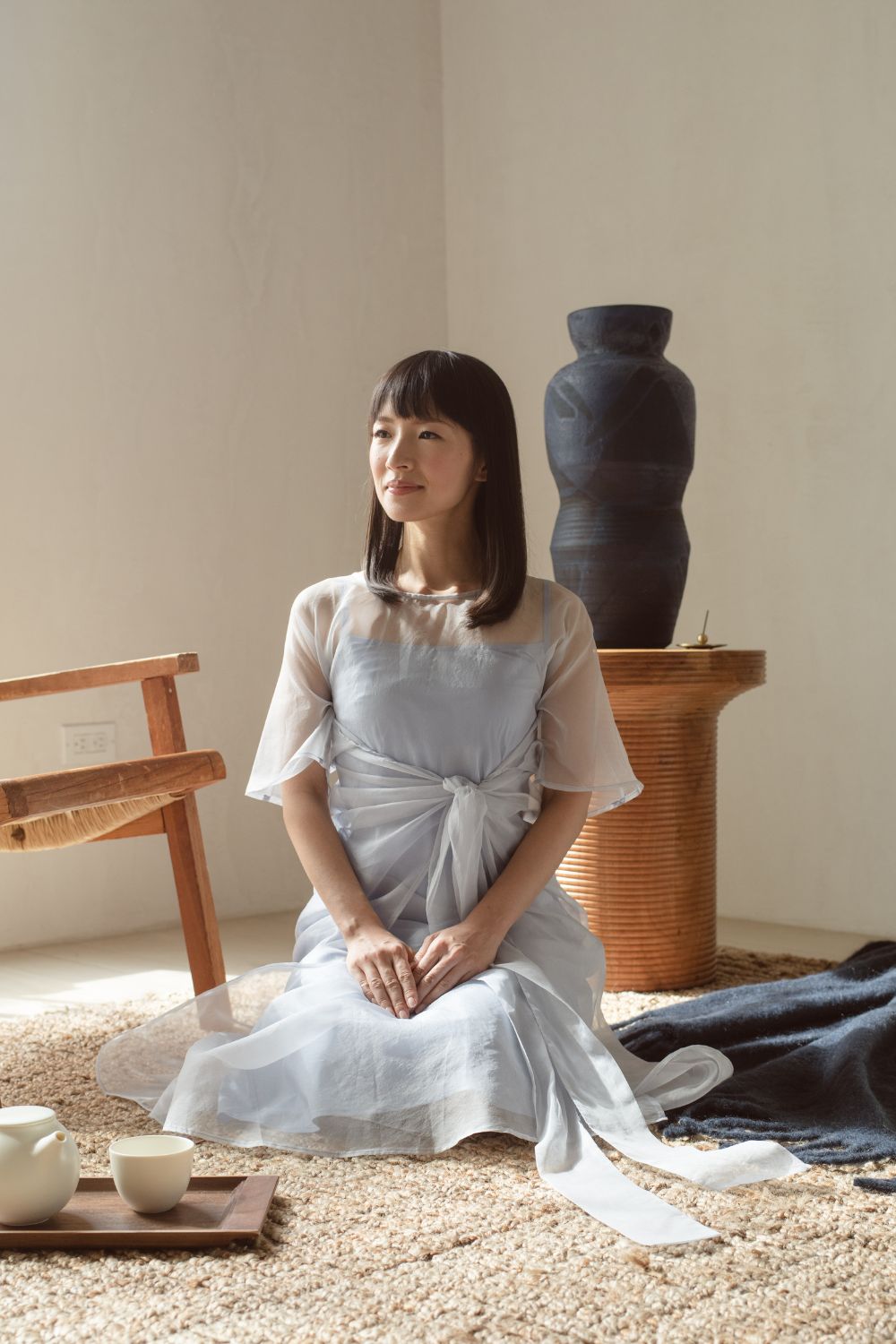
Marie Kondo On Her New Book Letter From Japan & Her Top Tidying Tips
By
3 months ago
'Tidying is about organising not only your space, but also your mind and heart'
In 2019 it seemed the whole world had been inducted into the cult of Marie Kondo. The tidying guru, well known for her Netflix show Tidying Up With Marie Kondo, hit the mainstream thanks to her innovative yet stunningly simple tidying technique: does this object spark joy? If yes, then display it with a smile. If no, out it goes.
Inspired by her upbringing in Japan where minimalism takes precedence over the hyper-consumerism so often favoured in the West, Kondo is following on from her acclaimed book The Life-Changing Magic Of Tidying-Up: The Japanese Art (2014) with a new literary offering inspired by her home country: Letter From Japan. Set across six chapters, the memoir-slash-guide explores how her cultural roots informed her tidying method and teaches readers about the Japanese values that can bring more peace to our day-to-day lives. We caught up with the interiors expert about the new book and her upcoming appearance at home inspiration show Home, Life & YOU 2025.
Q&A: Marie Kondo
When you wrote The Life-Changing Magic and made the subsequent TV show, did you ever imagine the impact it would have?
I never imagined it would have such a profound impact. What makes me truly happy is realising that people around the world have come to understand the true value of ‘tidying’ – far beyond simply making one’s home neat and clean. They have embraced its deeper message: that tidying is about organising not only your space, but also your mind and heart, and creating a life that truly sparks joy.
When you were younger you enjoyed tidying your friends’ homes. What inspired that urge?
My passion for tidying has continued since I was five years old. As a child, tidying felt like a game. I found joy in seeing a space become neat and discovered, even then, the positive effects that tidying can bring. I was always thinking about how to tidy in a way that would prevent a rebound and allow the order to last.
I began tidying my friends’ homes when I was a university student, and during that time I especially loved helping friends who lived on their own. Since I was still living with my parents, I greatly admired the idea of managing one’s own home independently.
Were you nervous about writing a memoir?
I have already written about my personal experiences and elements of myself in my previous books. For example, in The Life-Changing Magic of Tidying Up, I shared my thoughts, struggles and mistakes from the process of developing my tidying method. In Kurashi at Home (2022), I wrote about my daily routines and the ideas and feelings connected to them. Of course, I did feel a little nervous this time, too – about sharing such personal stories and how they might be received. But more than that, I wanted to write with the hope that my experiences might help readers reflect on their own lives or offer some encouragement.
Did you feel a lot of pressure writing a book about your home country?
Of course, there was a certain amount of pressure, but this book was born from my belief that the uniquely Japanese sensibilities I’ve come to appreciate – through being born and raised in Japan and later living and working abroad – could offer something valuable to people’s everyday lives. For example, ideas such as creating ‘ma’ (space or pauses) and cherishing the things around us mean finding joy in simple, ordinary moments. Those ideas can, I believe, serve as gentle reminders and guidance in our modern lives, which are often too busy and overflowing with information.
Did you feel much of a culture shock when you first moved to the US, and did you ever feel wary about raising your children there? What would you say are the biggest differences between life there and life in Japan?
In my case, since I had already been working quite a bit in the United States before moving there, it wasn’t so much a major culture shock as it was a deeper realisation that came from actually living there. For example, I became much more aware of the value and preciousness of water. In Japan, where water is abundant, it’s completely natural to fill the bathtub and take a bath every day. But in the US, I was surprised to learn that many homes have tank-style water heaters, which limits the amount of hot water available each day. It made me realise how differently people perceive the value of water, and being mindful of that in daily life was a very new and eye-opening experience for us.
What do you hope readers will take away from your new book?
In this book I’ve shared many tips and ideas for bringing a little more joy to your everyday life through various aspects of Japanese culture and the things I hold dear. But above all, the core message that runs throughout is the importance of savouring the small joys in daily life. That includes appreciating the belongings you already have, noticing the changing of the seasons, and taking quiet moments in your day to truly experience your surroundings – the space, time, and objects around you. Finding joy in these small, everyday moments and feeling gratitude for them – that’s the essence of what I most hope to convey. I hope this book serves as a gentle guide to help you find those sparks of joy in your own days. If the ideas in these pages can bring a sense of peace, beauty, or inspiration to your everyday life, nothing would make me happier.
Whenever I try to ‘Marie Kondo’ my home, I always struggle with throwing things away. Even if it’s not something I want in my home, the thought of it sitting in landfill equally upsets me. How do you manage when decluttering spaces?
First, I want to say that it’s completely natural to feel conflicted about letting go of things. If you feel a strong sense of guilt about discarding something, it can be very helpful to find a way that feels more meaningful to you – for example, donating it or giving it to someone who truly needs it. Finding a method that aligns with your values and brings you peace can make the process easier.
If you find that you simply cannot throw things away, that your feelings of guilt are too strong, my advice is not to force yourself to get rid of everything at once. Instead, start by letting go of items that are easier for you to part with right now – the ones you can decide about more comfortably. By doing so, you begin to lighten your surroundings, even just a little. And as your environment becomes lighter, your heart and mind will start to feel lighter too. In time, you may find that something you once thought you could never part with suddenly feels okay to let go of.
Oftentimes, many of the objects in our homes that don’t spark joy are unwanted gifts. When we’re trying to buy less, how do you recommend stopping other people over-consuming on your behalf without causing offence?
When it comes to the future, I think it helps to gradually share your lifestyle and values with those around you – for example, by saying things like, ‘I’m aiming for a more minimal lifestyle’, or ‘I’m trying not to accumulate too many possessions’. Doing so will naturally reduce the chances of receiving unnecessary gifts. For instance, in my case, I often tell people, ‘I love gifts that can be enjoyed right away, like food or flowers’. This also makes things easier for others, as they don’t have to worry about what to give.
What is sparking joy in your life right now? And is there anything you think you need to declutter?
I find the greatest joy in very small moments in my daily life – doing household chores, spending time with my children, or simply enjoying a cup of tea. When it comes to things I feel the need to ‘tidy up’, I sometimes find myself taking on too much work. That’s why I try to regularly check how I’m spending my time and make adjustments – to tidy up my schedule, so to speak.
I love the passages in your book about seeing virtue in the between the lines, the ma. How do you think we can embrace those quiet moments more in our daily lives?
If you feel that your life is too full right now – that there isn’t enough ‘ma’ (space or pause) – simply becoming aware of that feeling is already a big first step. For example, if you often feel overwhelmed by too much information, try consciously turning off your phone and creating moments when you don’t look at it. If there’s always music playing in the background, try turning it off intentionally. You might also take a few minutes to meditate. Even just making a small, conscious effort to create moments of quiet, to invite ‘ma’ into your life, allows you to experience its effects firsthand.
What are you looking forward to at the Home, Life & YOU event? What do you hope visitors will take away from it?
I’m really looking forward to the upcoming Home, Life & YOU event. This time, there will be sessions featuring KonMari Consultants, who will share their perspectives on tidying from the KonMari approach. I’ll be taking part in a talk session focused on my experiences and insights on motherhood. It will be my first time speaking on this theme at an event, so I’m very excited about it, and I’m also truly looking forward to connecting with everyone who attends.
Home, Life & YOU Live is running from the 18–19 October at Excel London. Find out more at homelifeandyou.com





